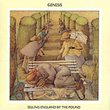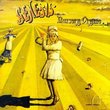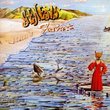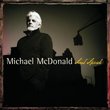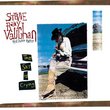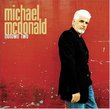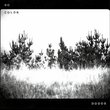| All Artists: Genesis Title: Genesis Live [Definitive Edition Remaster] Members Wishing: 8 Total Copies: 0 Label: Atlantic / Charisma Records Ltd. Original Release Date: 1/1/1973 Re-Release Date: 10/18/1994 Album Type: Live, Original recording reissued, Original recording remastered Genres: Pop, Rock, Classic Rock Styles: Progressive, Progressive Rock, Album-Oriented Rock (AOR) Number of Discs: 1 SwapaCD Credits: 1 UPC: 075678267628 |
Search - Genesis :: Genesis Live [Definitive Edition Remaster]
![Genesis Live [Definitive Edition Remaster]](https://nationalbookswap.com/cd//l/59/4859/13104859.jpg) | Genesis Genesis Live [Definitive Edition Remaster] Genres: Pop, Rock, Classic Rock
|
Larger Image |
CD DetailsSimilar CDs
Similarly Requested CDs
|
CD ReviewsMott's own Genesis Kim Fletcher | Pattaya, Chonburi Thailand | 02/08/2008 (5 out of 5 stars) "Genesis were formed in early 1967 out of a couple of bands that met at Public School, Charterhouse. (In England, the posh expensive Schools are called Public Schools, which has always puzzled this dog. They certainly were not public as they all cost a fortune to attend). They recorded their first album "Genesis To Revelation" and released it in 1969. That was before the band had even played before a live audience. That by itself is an amazingly long incubation period. They also had already a change of drummers by that time, Chris Stewart left and John Silver (great name for a drummer) came in. This album hardly caused a ripple in record stores round the country, and is unrecognizable as anything Genesis were to do after this point. A re-think was in order. It was decided that drummer Silver was unsuitable. Out with him and in came John Mayhew. They all de-camped to a conveniently empty cottage just outside Dorking to work on their sound and a possible stage show. Eventually Tony Stratton Smith signed them to his new Charisma label, which on the strength of watching one dodgy rehearsal, and one badly recorded demo tape, must be one of the most inspired signings in the history of Rock 'n' Roll. The album "Trespass" was recorded and the band began to gig. However, before the album was released disaster stuck. Anthony Phillips, original lead guitarist with the band and instrumental in defining the guitar sound that stayed with the band all through their career, decided that the Rock 'n' Roll lifestyle within a band was not for him. At the same time the three remaining original members decided that John Mayhew was not the man to be sitting on the drum stool (scratch deep enough all bands have had their Spinal Tap moments). Replacing Anthony Phillips was not going to be easy, but finally Steve Hackett was found. He was a very earnest and intense young man, whose character was in keeping with his guitar playing. The drum stool was the next problem. After fourteen drummers had a go, a certain young chap by the name of Phil Collins answered a Melody Maker small ad and was drafted into the Genesis ranks straight away. As a child actor Phil Collins had been in several T.V. and stage shows including the part of the artful Dodger in the Londoner West End production of "Oliver". After "Oliver" he drummed in several bands, the last of which had been a group called "Flaming Youth". They were just rapping up in the aftermath of some ill advised and unsuccessful publicity, so Phil Collins was glad to get the gig with Genesis. But I am sure the other four did not realize what a useful little chap their new drummer was going to be in years to come. So by early 1971 the re-shaped Genesis was finally gathering some real momentum with growing approval from the press and a steadily increasing hard core fan base. Each album they released outstripped the last ("Nursery Cryme" in 1971 and British breakthrough album "Foxtrot", which followed in 1972). By now they were out on the road almost consistently wowing their fans with their unique blend of rock music, dexterous skills, and groundbreaking stage show. A quite remarkable sight on stage they were, too. Steve Hackett would play his blistering solos from a seat on the left hand of the stage, while multi-instrumentalist Mike Rutherfood would wander the stage with his twin necked guitar enabling him to play the bass and twelve string guitar at the same time. Tony Banks would be on the right hand side of the stage, almost invisible from the audience as he was completely surrounded by his multi collection of keyboards. But the wonderful wall of sound that became the trademark of Genesis left you in no mind that he was there. Then of course, out the front, was charismatic lead singer Peter Gabriel, who would often go through eight costume changes per concert in an effort to better put across the story of each song. Not for Genesis to play short sharp little songs; most clocked in at over eight minutes. The only single that Genesis had released at this point was "The Knife". To accommodate it into the single formula it had literally been cut in two with side `A' being "The Knife - part one" and Side `B' being ''The Knife - part two". That didn't exactly endear them to radio play. So Gabriel's role was crucial in "Genesis" to keep the audience's attention. His flute playing also gave the band an extra dimension. While the band was on the tour promoting "Foxtrot", several of the concerts were recorded to give the fans something while they came off the road to record their next album. ("Selling England By The Pound " 1973 became their worldwide breakthrough album for them.) Five songs were selected for "Genesis Live", which rocketed into the charts in Britain reaching # 9. What you got were five epics all clocking in at over eight minutes, in all forty five minutes. A lot for the days of vinyl. And although not a whole concert, the running order of the songs worked very well. First we have two songs off the "Foxtrot" album, but no problem there as the band had quickly adapted the songs for the road, beefing them up quite considerably. In the case of opener `Watcher of the Skies' Tony Banks had added an awe inspiring opening played on the Mellotrone and the Moog Syntersizer, By the time Phil Collins comes thundering in showing the chops on the drums that would soon have him rated as one of the best drummers in rock music (this was way before anybody had thought about putting him out front to sing), you are already caught up in the web Genesis set out to catch you. Tony Bank's keyboards rather dominate the opener, using the guitars to keep up a strong but slightly slower beat than on the studio album. Then Peter Gabriel takes over on `Get'em Out By Friday', a tirade against despicable landlords. Gabriel plays all the roles in different voices. With the amount of energy this must of taken up, it is no real surprise that two years later he stunned the rock world by leaving Genesis when they were on the crest of the wave. `The Return Of The Giant Hogweed' was always a favorite of Genesis fans and was probably as close to actual Rock 'n' Roll that Genesis would ever get to; something to actually bang your head to - heavy metal style. `The Return of the Giant Hogweed' was one of two from "Nursery Crymes", the other one being `The Musical Box'. This is the center piece of this album and shows all the light and dark that the band put into their music. The mid section features a guitar solo from Steve Hackett that would lay the template for all progressive rock guitarists to follow. The final climax to this epic as the band hammer their way home with Gabriel wailing over the top of them all, has often been imitated but never bettered. After `The Musical Box' has left you exhausted, the band carries on with a track from "Trespass", `The Knife'. You can tell by the audience reaction to Gabriel's announcement of what the band intended to play next that this was another crowd favorite. Expectations were running high. But the band gave an interpretation that exceeded the studio version in astonishing fashion. This must be partly due to the relative new inclusions of Phil Collins and Steve Hackett into the band. Phil Collin's drums gave the song a much crisper definition, while Hackett's guitar work reached new heights. A dramatic conclusion to a fine album. Pawed by Mott The Dog Remastered by Ella Crew " A Live Performance going back to the early Progressive Rock L.A. Scene | Indian Trail, NC USA | 02/24/2008 (3 out of 5 stars) "There has never been a shortage of live albums by Genesis. Genesis' "Genesis Live" is one of five live sets (the other four being "Seconds Out, "Three Sides Live", the two volume "The Way We Walk", and "Live Over Europe"). "Genesis Live" goes back to the very beginning days of Genesis and features the five person lineup of Peter Gabriel, Steve Hackett, Mike Rutherford, Tony Banks, and Phil Collins. "Genesis Live" also is the only Genesis live album to feature Gabriel on lead vocals. This particular live album only contains five tracks, but it showcases the progressive Rock sound the band demonstrated during this When I look at Genesis as band, I see four distinct phases the band has gone through. Phase 1 is the Peter Gabriel Era. This spans from 1969 ("From Genesis to Revelation") to 1974 ("The Lamb Lies Down on Broadway"). It was during Phase 1 that Peter Gabriel was the lead vocalist and Genesis could easily be categorized as a progressive Rock band. Phase 2 is the Early Phil Collins Era spanning from 1976 ("A Trick of the Tail") to 1982 ("Three Sides Live"). In this era, Phil Collins took over as lead singer. The band was still very much a progressive rock band, but as the progressive rock landscape would change - so would Genesis. This might indirectly have led to Phase 3 which is the Late Phil Collins Era from 1983 ("Genesis") to 1993 ("The Way We Walk Volume 2: The Longs"). This is the commercial/pop era that I referred to earlier. At this point, there would be a lot less progressive rock flavor to Genesis' music. The fourth phase, Phase 4 is the Ray Wilson Era. This was when Ray Wilson took over as lead vocalist for Phil Collins. There would only be one album in this era - 1997's "Calling All Stations" and it seemed like Genesis tried to recapture some of their progressive rock roots - but 90s style. "Genesis Live" was released in Phase 1 and draws tracks from three albums during this period "Trespass", "Nursery Cryme", and "Foxtrot". It is worth noting that while this album was released during Phase 1, there is no representation from Genesis' first album, "From Genesis to Revelation". When comparing "Genesis Live" to the other Genesis albums, you are not only getting the only Genesis live album with Peter Gabriel, but one that contains the earliest material. Normally when there is a live release, I prefer the album to be a live recording from a single concert performance. I prefer it to be delivered in the order in which the songs were actually delivered. By having things from a single night and in order - I feel there is continuity and the magic of the concert is captured perfectly. With this particular collection, the tracks were recorded at two venues. From some research, I've determined that four of the five tracks were performed on a single night in February 1973 (De Montfort Hall in Leicester) while one track ("Return of the Giant Hogweed") was performed the night before in Manchester. While all of these tracks are considered normal length by progressive Rock standards, they are still considered longer tracks from popular music standpoint. All of the tracks are over 8 minutes and the total length of the collection is 45+ minutes. It is clear from listening to this music that this performance doesn't represent a single concert. It also is clear that this is a subset of a full concert. It would have been nice to hear the whole concert, but one must remember that back in 1973, LPs held less music than CDs - and there was often pressure to release a single LP as opposed to multiple LPs. A few observations that I got from "Genesis Live": 1) If you aren't as familiar with Phase 1 Genesis, this is a good place to start. You aren't going to hear this type of stuff with the radio-friendly Genesis music. The most amazing thing is Peter Gabriel's haunting voice that seems perfect suited to the progressive Rock sounds of Genesis. 2) "The Musical Box" might be known to some of the more mainstream fans who purchased the "The Way We Walk Volume 2 - The Longs". On "The Longs", it contains a medley of old Genesis songs simply called "The Old Medley". One of the songs in "The Old Medley" is "The Musical Box" which contains a snippet of "The Musical Box". "Genesis Live" is going to contain a full version that will provide a full appreciation for the progressive Rock roots of the band. 3) The intimate setting for this material will be in stark contrast to the stadium performances done on 2007's "Live Over Europe" set. The intimate setting works very well for this concert. The sound quality is good, but one must keep in mind this material is 35 years old. 4) Tony Banks might be the real star of this performance. His use of the Mellotron on "Watcher of the Skies" is simply masterful - and truly shows progressive Rock at its best. The live version of this song will not disappoint. As with most live albums, there are no lyrics included. In the liner notes, there is a short story by Peter Gabriel. Overall, as mentioned this is going to be a sampling of the earliest days of Genesis. The only real disappointment is that you are probably are going to be wanting for more music by the band. Die-hard Genesis fans will love this album. Latter day Genesis fans still may want to check out this album and learn more fo the roots of the band." Genesis' first live album still sounds phenomenal 35 years o Terrence J. Reardon | Lake Worth (a west Palm Beach suburb), FL | 07/25/2008 (5 out of 5 stars) "English prog rockers Genesis released its fifth album Genesis Live in July of 1973 in the UK and early 1974 in the US.
For many years this was the only live document in the Genesis catalog from the Peter Gabriel/Phil Collins/Tony Banks/Steve Hackett/Mike Rutherford era (until the release of 1998's Genesis Archive 1967-75 4-CD set). Genesis Live documents the group's late 1972/early 1973 tour in support of their excellent fourth album Foxtrot. Shows in England were recorded for a potential King Biscuit Flower Hour radio show broadcast but was released instead as a tie over for fans until the next Genesis album which turned out to be Selling England By the Pound. Although it's only a single disc live album leaving the listener hungry for more, there is enough to keep the listener gripped to their stereo systems/CD players and so forth for 45 plus minutes. The opening version of the Foxtrot track "Watcher Of The Skies" is possibly the best version of the track as it is more excellent than its studio counterpart (especially keyboard player Tony Banks' stellar keyboard intro). Next is a spirited version of "Get 'Em Out By Friday" which is better than the version taht appeared on Foxtrot. "The Return Of The Giant Hogweed" follows and is an excellent version which keeps one glues to its stereo for almost ten minutes. Next is a great version of the early Genesis masterwork from 1971's Nursery Cryme entitled "The Musical Box" which is a great version heard to be believed. The grand finale to this live album is the Trespass closer "The Knife" done with great relish and more gusto than the studio counterpart (probably thanks to addition of drummer Phil Collins and guitarist Steve Hackett in late 1970 to the band). Genesis Live reached #101 on the Billboard chart but aside that, Genesis Live is a great document to the early days of the band. One more note, Genesis Live was originally planned to be a double live album that also would've included the band's masterpiece "Supper's Ready" but the band and its label decided against it. Thank goodness for the Genesis Archives Vol. 1 box set which was released in 1998 which featured a great live version of "Supper's Ready". Genesis Live is still recommended anyhow!" |

 Track Listings (5) - Disc #1
Track Listings (5) - Disc #1